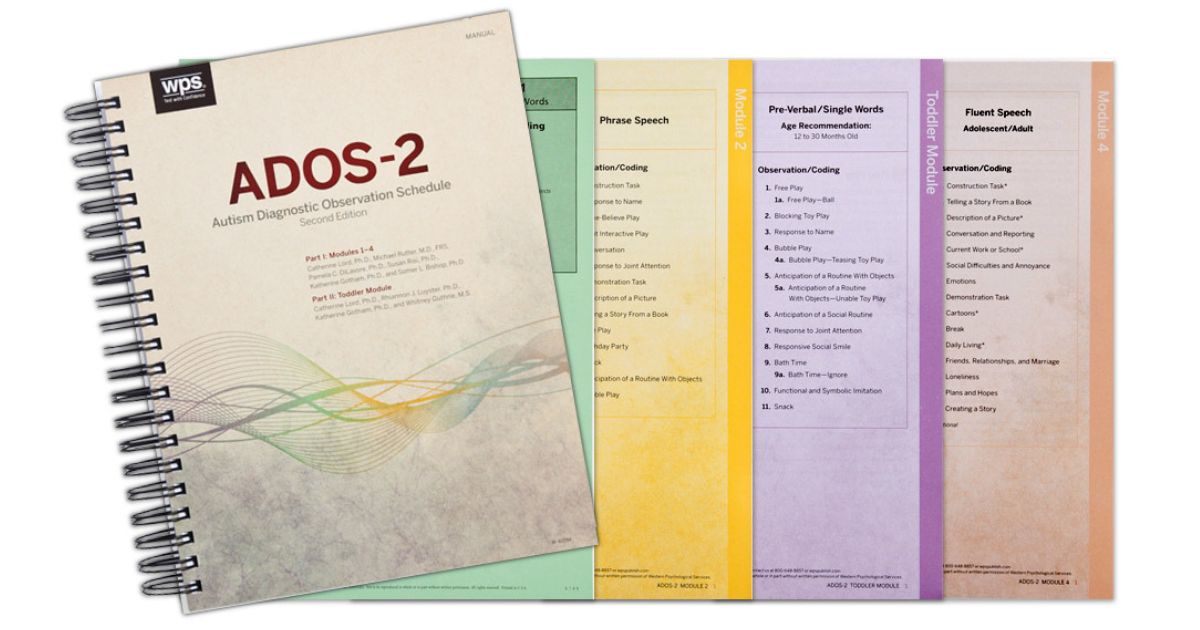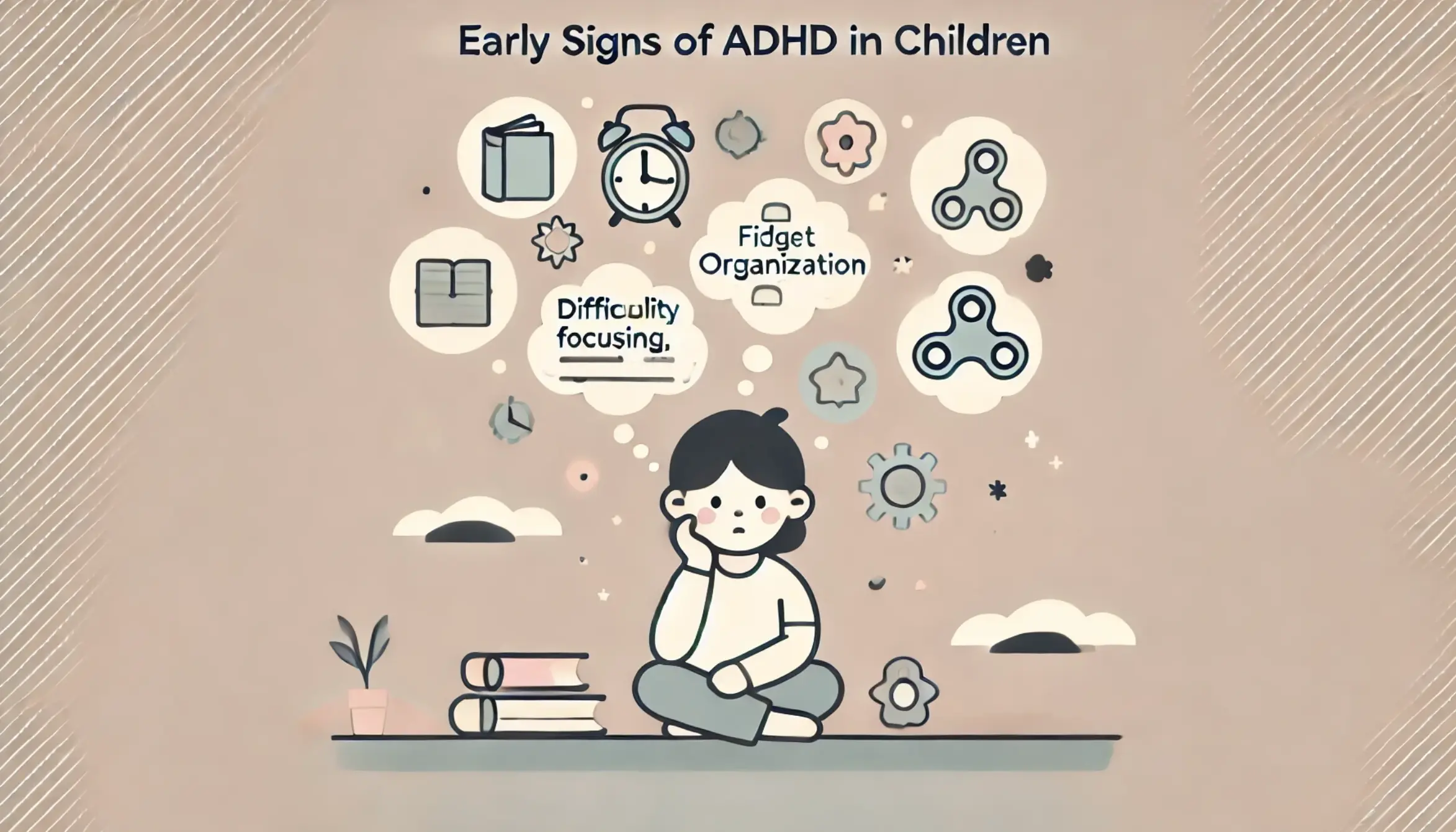Navigating the intricate realm of psychology, particularly after completing your graduate studies, can be both exciting and daunting. The field offers a multitude of pathways, each brimming with potential and purpose. One such avenue that holds immense promise for post-graduation students is the role of a psychological assistant or associate.
Stepping into the shoes of a psychological assistant/associate opens a gateway to hands-on experience and invaluable insights into the world of mental health and human behavior. This guide is crafted to illuminate the path for those eager minds who have embarked on this journey or are considering it a viable option.
In this comprehensive guide, we will dig into the nuances of these roles, shedding light on the responsibilities, qualifications, and rewarding aspects of aiding licensed psychologists in their practice. From working directly with clients to assisting in research endeavors, these positions offer a dynamic platform to enhance your skills while contributing meaningfully to the well-being of individuals.
As we journey through the pages of this guide, we will uncover the various settings in which psychological assistants/associates can thrive – be it in clinical, educational, or industrial environments. Furthermore, we will address the steps to pursue these roles, from educational prerequisites to licensure requirements, ensuring you are well-equipped to make educated decisions for your future.
Whether you’re an aspiring psychological professional or a curious individual seeking insights into mental health, this guide will serve as your compass, navigating you through the labyrinth of opportunities and providing you with a clearer perspective on the multifaceted role of a psychological assistant/associate.
So, let’s embark on this illuminating journey together, unraveling the possibilities in the world of psychological assistance.
Psychological Associate Job Benefits for Post-Grad Students
Post-grad jobs in psychology offer many invaluable benefits for post-graduate students seeking to embark on a fulfilling and impactful journey in psychology. Beyond the obvious financial rewards, this role provides a unique opportunity to acquire both knowledge and hands-on experience, fostering a well-rounded skill set that is indispensable for professional growth.
For post-graduate students, one of the most compelling advantages of becoming a Psychological Associate is the chance to deepen their understanding of psychological theories and concepts. The role often involves collaborating closely with licensed psychologists, participating in case discussions, and conducting research, enabling associates to engage in continuous learning and applying theoretical principles to real-life scenarios.
This dynamic environment promotes intellectual curiosity and a deeper grasp of the complexities of human behavior.
Moreover, the hands-on experience gained as a Psychological Associate is invaluable. Working with clients directly- under the supervision of licensed professionals allows post-graduate students to develop essential clinical skills, such as administering assessments, designing treatment plans, and facilitating therapeutic sessions.
This practical experience enhances their confidence and equips them with the tools needed to excel in the challenging and rewarding world of psychology.
Furthermore, the role often provides professional networking and mentorship opportunities, fostering connections that can open doors to future career prospects. By collaborating with established professionals, post-graduate students can gain insights, guidance, and a broader perspective on the field.
Requirements to Work as a Psychological Assistant After Graduation
Becoming a Psychological Assistant after graduation requires a combination of educational attainment, practical experience, and a commitment to ethical and professional standards. These requirements ensure that individuals entering this role are well-prepared to provide valuable support in psychology.
First and foremost, the foundational requirement is the completion of a valid undergraduate or graduate degree in psychology or a related field. This academic background equips individuals with a solid understanding of psychological theories, research methodologies, and ethical principles that form the basis of effective practice.
In addition to education, most jurisdictions require aspiring Psychological Assistants to obtain supervised experience under the guidance of a licensed psychologist. This hands-on experience is essential for honing clinical skills, conducting assessments, and engaging in therapeutic interventions.
The number of required supervised hours varies depending on the jurisdiction and specialization, ensuring that candidates are well-versed in the practical aspects of their role.
Ethics and professional conduct are paramount in the field of psychology. Prospective Psychological Assistants must adhere to strict ethical guidelines and demonstrate a strong commitment to client welfare and confidentiality.
Many jurisdictions also mandate passing a licensing or certification examination to ensure a comprehensive understanding of ethical principles and psychological practices.
Continuous education and professional development are key components of maintaining competence in the field. Psychological Assistants often need ongoing training and supervision to stay current with advancements in research, treatments, and methodologies.
Mandatory Skills and Certifications

In various professions, mandatory skills and certifications play a crucial role in ensuring competency, safety, and the ability to deliver high-quality services. These skills and certifications act as benchmarks, validating an individual’s expertise and capability to perform specific tasks or roles effectively.
Mandatory skills encompass a range of essential abilities for success in a particular field. These skills are acquired through education, training, and practical experience. They might include technical proficiencies, such as programming languages for software developers or medical procedures for healthcare professionals.
Additionally, mandatory skills often encompass soft skills like communication, problem-solving, and teamwork, which are essential for effective collaboration and client interactions.
Certifications, on the other hand, are formal credentials awarded to individuals who meet specific requirements set by industry organizations, regulatory bodies, or professional associations. These certifications serve as proof of an individual’s competence and adherence to industry standards.
They often involve rigorous examinations, practical assessments, and ongoing professional development.
For example, in healthcare, medical professionals such as doctors and nurses must obtain licenses and certifications to practice legally. In technology, professionals might seek cybersecurity or cloud computing certifications to demonstrate their expertise and enhance their employability.
Mandatory skills and certifications provide several benefits. They ensure consistent quality and safety in services, help employers make informed hiring decisions, and instill confidence in clients and stakeholders. Additionally, they encourage ongoing learning and professional growth, as individuals are motivated to stay up-to-date with the latest industry advancements.
Psychological Assessment Course Work
Psychological assessment coursework is a fundamental and integral component of education and training in the field of psychology. This specialized coursework equips students with the knowledge, skills, and techniques to effectively evaluate and analyze various aspects of human behavior, cognition, emotions, and personality.
Students comprehensively understand the principles and methodologies behind psychological assessments through theoretical understanding and practical application.
The coursework covers various topics, including standardized testing, diagnostic interviewing, observation, and self-report measures. Students learn to select appropriate assessment tools, administer tests, interpret results, and communicate findings to clients or relevant parties.
They delve into the ethical considerations surrounding assessments, including cultural sensitivity, confidentiality, and the responsible use of assessment data.
Hands-on experience is a critical component of psychological assessment coursework. Students often engage in role-playing scenarios, mock assessments, and case studies to simulate real-world situations.
This experiential learning helps them develop essential skills in rapport-building, questioning techniques, and integrating assessment data into meaningful recommendations.
Moreover, as technology continues to shape the field of psychology, many courses now incorporate training in computerized assessments and data analysis, preparing students to adapt to modern assessment methods.
Psychological assessment coursework prepares students for various career paths within psychology, such as clinical assessment, educational assessment, organizational assessment, and research. It also lays a foundation for those interested in pursuing advanced degrees and specializing in neuropsychological or forensic evaluation.
The Autism Diagnostic Observation Schedule(ADOS)

The Autism Diagnostic Observation Schedule (ADOS) is a widely recognized and standardized assessment tool for diagnosing Autism Spectrum Disorder (ASD). Developed by a team of researchers, the design of ADOS is to provide clinicians with a structured and systematic method for observing and evaluating the social communication and behavior patterns of individuals suspected of having ASD.
The ADOS is particularly valuable due to its ability to create a controlled environment that elicits specific behaviors and interactions relevant to diagnosing ASD. ADOS consists of a series of tasks and activities that engage the individual in social interactions, communication, and play.
Trained professionals administer the ADOS and carefully observe the individual’s responses, capturing verbal and nonverbal behaviors.
What sets ADOS apart is its flexibility in accommodating individuals across different developmental stages and language abilities. It includes various modules tailored to a specific age range and language proficiency. This ensures the assessment is appropriate and informative for a broad spectrum of individuals, from nonverbal young children to higher-functioning adolescents and adults.
ADOS scores are derived from systematic observations and interactions, allowing clinicians to assess and quantify the presence of key ASD symptoms. These scores help guide diagnostic decisions, support treatment planning, and provide valuable information for research purposes. Using standardized procedures in administering and scoring ADOS enhances its reliability and validity, contributing to the consistent and accurate diagnosis of ASD.
Information on Accurate Diagnostic & Formulation
Accurate diagnostic assessment and formulation are essential components of effective healthcare and psychological practice. These processes involve systematically gathering information, analyzing data, and synthesizing findings to develop a comprehensive understanding of an individual’s condition, which is the foundation for informed decision-making and tailored interventions.
Diagnostic assessment systematically collects information about an individual’s physical, psychological, and behavioral symptoms. This often includes medical history, physical examinations, laboratory tests, and imaging studies in healthcare. Psychology and mental health encompasses clinical interviews, behavioral observations, psychological assessments, and self-report measures.
By rigorously gathering this data, practitioners can identify patterns, rule out alternative explanations, and arrive at an accurate diagnosis.
However, a diagnosis alone is insufficient to guide effective treatment. This is where formulation comes into play. Formulation is a higher-level process that seeks to understand the underlying factors contributing to an individual’s symptoms and difficulties. It considers biological, psychological, social, and cultural factors that interact to shape a person’s experiences.
A well-constructed formulation provides a holistic view beyond diagnostic labels, helping practitioners tailor interventions that address the root causes of the individual’s challenges.
The formulation also takes into consideration an individual’s strengths, resources, and coping mechanisms. This strengths-based approach helps create a treatment plan that leverages existing assets to facilitate recovery and well-being.
Moreover, formulations evolve, adapting to new information and adjusting as individuals respond to interventions.
Both accurate diagnosis and thorough formulation are crucial for optimizing patient care and outcomes. They enable practitioners to provide evidence-based interventions tailored to an individual’s needs and circumstances. This individualized approach increases the likelihood of successful outcomes and respects the uniqueness of each person’s experience.
Psychological Assessment Experience
Psychological assessment experience is a pivotal aspect of professional psychology practice, providing practitioners with a comprehensive understanding of individuals’ cognitive, emotional, and behavioral functioning. This hands-on experience involves conducting various assessments, interpreting results, and formulating recommendations to guide treatment, intervention, and support strategies.
Psychological assessments equip practitioners with valuable insights into clients’ unique profiles. It allows them to explore cognitive abilities, personality traits, emotional functioning, and potential underlying issues.
By administering standardized tests, observing behavior, and conducting clinical interviews, practitioners gain a holistic view of their clients’ strengths, challenges, and areas for growth.
Interpreting assessment results requires the skill to analyze data within a broader context. Practitioners must consider the individual’s background, history, and cultural influences to reach accurate conclusions.
This nuanced interpretation aids in forming a comprehensive understanding of the individual’s experiences, guiding the development of targeted interventions.
One of the most rewarding aspects of the psychological assessment experience is witnessing the positive impact of interventions informed by assessment findings. When practitioners can tailor treatment plans based on their in-depth understanding of a client’s needs, they increase the likelihood of successful outcomes. Individual treatment plans can range from educational support for learning difficulties to therapeutic interventions for mental health concerns.
Furthermore, the psychological assessment experience hones critical skills, such as effective communication and rapport-building. Establishing a trusting relationship is essential for accurate assessment, as clients need to feel comfortable sharing their experiences openly.
Additionally, practitioners learn to convey assessment results in a sensitive and understandable manner, empowering clients to make informed decisions about their well-being.
What to Expect by Working as a Psychological Associate
Working as a Psychological Associate is a fulfilling and multifaceted role that involves a diverse range of responsibilities within the field of psychology. From assisting licensed psychologists to conducting assessments and providing support, this profession offers a rewarding blend of clinical work, research, and collaboration.
Psychological Associates can expect to be involved in administering and scoring psychological assessments. This can include cognitive assessments, personality assessments, and diagnostic interviews. The role requires proficiency in selecting appropriate assessment tools, interpreting results, and communicating findings to both clients and supervising psychologists.
Collaboration is a central aspect of the job. Psychological Associates often work closely with licensed psychologists, collaborating on treatment plans, case discussions, and research projects. This collaborative environment provides opportunities for mentorship, learning, and exposure to diverse perspectives within the field.
Direct client interaction is a significant part of the role. Psychological Associates engage in therapeutic interactions, counseling sessions, and psychoeducational interventions. This hands-on experience enables them to cultivate empathy, strong communication skills, and the capacity to establish relationships with clients from various backgrounds.
Research involvement is another expectation for Psychological Associates. They may contribute to research studies, data collection, and analysis, playing a role in advancing psychological knowledge and contributing to evidence-based practices.
Ethical considerations are paramount. Psychological Associates must adhere to ethical guidelines and maintain client confidentiality and welfare. This commitment to ethical practice ensures the highest professionalism and client care standards.
Continuing education is essential for growth in this role. Psychological Associates are encouraged to pursue ongoing professional development, attend workshops, and seek further specialization. Continuing their education helps them stay current with advancements in the field and expand their skill set.
Hands-on Experience

Engaging in hands-on experience is a cornerstone of the educational journey for students pursuing a career in psychology, particularly as a Psychological Associate. This immersive learning approach provides students with practical skills and an in-depth understanding beyond theoretical knowledge.
In this role, students can expect to gain extensive experience with various assessment measures, including IQ tests and Autism evaluations, which are pivotal components of their training.
Working with assessment measures like IQ tests offers students a firsthand understanding of cognitive functioning. They learn how to administer these tests, interpret scores, and analyze individuals’ cognitive strengths and challenges. This experience enhances their ability to assess intellectual capacities accurately and provide informed recommendations based on the results.
Furthermore, hands-on experience in Autism evaluations equips students with valuable skills for assessing and understanding the complexities of Autism Spectrum Disorder. Students learn to engage with individuals on the spectrum, conduct diagnostic interviews, and employ standardized assessment tools such as ADOS (Autism Diagnostic Observation Schedule).
This hands-on exposure enables students to recognize the nuances of Autism symptoms, leading to accurate diagnoses and effective intervention strategies.
In addition to technical skills, hands-on experience enhances students’ interpersonal abilities. They develop communication skills to effectively interact with clients and their families, establish rapport, and create a comfortable environment for assessment. This skill set is crucial for fostering trust and ensuring the quality of assessment outcomes.
Hands-on experience provides students with a bridge between classroom learning and real-world application. It hones their critical thinking, decision-making, and problem-solving skills as they navigate the complexities of different assessment scenarios.
Ultimately, the hands-on experience students gain through IQ tests, Autism evaluations, and other assessment measures significantly enriches their professional development. By combining theoretical knowledge with practical application, students emerge as competent and confident professionals ready to contribute meaningfully to psychology.
Report Writing
Students embarking on a journey in psychology can expect to acquire a fundamental skill: report writing. This skill is a cornerstone of effective communication within the field and is crucial for conveying assessment outcomes, research findings, and treatment plans in a clear and organized manner.
Throughout their education, students will learn the intricacies of report writing, enabling them to synthesize complex information into coherent documents. Studies teach students how to craft detailed and insightful assessment reports in psychological assessment. This involves translating raw assessment data, observations, and clinical insights into a format that is accessible and informative to both professionals and clients.
Students will delve into the various components that constitute a well-structured report. They will understand the significance of an introduction that outlines the assessment’s purpose and parameters. The methods section will teach them to detail the assessment tools and techniques employed. The results and interpretation section will help them analyze assessment data and provide meaningful insights.
Furthermore, students will master the art of making recommendations in their reports. They will learn how to translate assessment findings into actionable treatment, intervention, or further assessment guidance. This crucial aspect of report writing empowers professionals to guide the decision-making process for clients’ well-being.
Students will also develop a keen awareness of ethical considerations in report writing. Confidentiality, accuracy, and cultural sensitivity are essential aspects that require upholding. They will learn to balance the need for transparency with protecting individuals’ privacy.
Practical exercises and real-world scenarios will be integral to students’ learning experiences. They will work with mock assessments, role-play, and receive feedback to refine their report-writing skills. This hands-on approach bridges the gap between theoretical knowledge and practical application.
Ultimately, learning report writing equips students with a versatile skill applicable in various professional settings.
Duties working as Psychological Associate/Assistant
Embarking on a career as a Psychological Assistant or Associate opens doors to a realm of fulfilling responsibilities and impactful contributions to the field of psychology. These roles offer a unique blend of learning and practical application, allowing individuals to witness firsthand the transformative power of mental health support.
In this section, we’ll delve into the intricate tapestry of duties that come with working as a Psychological Assistant/Associate, shedding light on the diverse and essential tasks that make up this rewarding profession.
Services to Clients and Families:
- Conduct comprehensive psychological evaluations that include but are not limited to assessing intellectual, developmental, academic, social/emotional, and behavioral status.
- Administering, scoring, and interpreting selected and appropriate measures to assist in determining and supporting a clinical formulation and diagnosis.
- Assessment and data collection by use of informal or non-standardized evaluation techniques.
- Interpreting and utilizing assessment data to write psychological reports and develop appropriate recommendations when needed/required.
Clinical Supervision:
- Attend weekly one-hour one-on-one meetings, including organized training, topics of clinical concern related to clients, and administrative tasks.
- Complete all necessary paperwork related to the position, including paperwork relevant to the California Board of Psychology and status as an employee. Regular contact with a supervisor if and when support is required and if clinical crises may occur.
Professional Development:
- Attending training, conferences, and required coursework (if necessary) to develop professional attitudes and skills.
- Maintaining professional skills through the reading of current literature and professional memberships.
- Maintaining current professional skills related to cultural competence entails carefully considering topics like race, socioeconomic status, gender, language, etc. while developing clinical formulation and diagnosis.
Other Duties and Responsibilities:
- Ensure all discussed timelines related to report writing and scheduled appointments are followed and closely adhered to.
Work as a Psychological Associate In Oakland, CA Today
In the vibrant landscape of Oakland, CA, opportunities await aspiring Psychological Associates. With a dynamic environment that nurtures growth, the field is flourishing. Ability Psych Services seeks passionate professionals to join its team, opening doors for those ready to make a difference in people’s lives. Don’t miss the chance to contribute to mental health and psychology in one of California’s most diverse and culturally rich cities. Check our Careers page and apply today!





